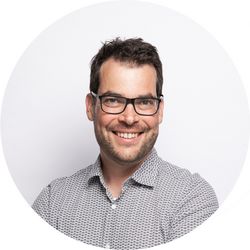The governance of deep transitions: The role of International Organisations
The subproject ‘The governance of deep transitions: The role of international organisations’ is part of a larger research project based at the Science Policy Research Unit (SPRU), University of Sussex (SPRU) in the UK and is led by Prof. Johan Schot. Deep transition are defined as “a series of connected and sustained fundamental transformations of a wide range of socio-technical systems in a similar direction” (Schot and Kanger 2018: 1045). Prof Schot and his team propose that a limited number of meta-rules which are shared across socio-technical systems have for the past 250 years driven innovation and system evolution into a particular direction. One example of a meta-rule is the drive to use fossil fuels in systems such as agriculture, energy or mobility. This direction of development has led to a number of negative social and environmental consequences. They therefore argue that such meta-rules need to change in line with demands for sustainability. Their framework aims to explain the emergence, acceleration, stabilization and directionality of such deep transitions. The IÖW focusses specifically on proposition 5 of Schot and Kanger (2018: 1954) which states: “Further facilitating and accelerating the creation of between-system links is the aggregation and intermediation work of inter- and transnational organizations. This aggregation work is purposeful, geared towards homogenization and standardization”. Their argument is that it is these international organisations that contribute to the circulation of rules beyond individual socio-technical system and national boundaries. The aim of this subproject therefore is to theoretically develop and empirically test this proposition to obtain a better understanding of the role of international organisations in the shaping of meta-rules. Conceptually, the subproject mainly draws on the international relations literature which focusses explicitly on understanding the role of international expert networks and international organisations in creating shared rules. We build on these literatures in order to further develop proposition 5. Empirically, the proposition will be tested through a case study of the emerging meta-rule ‘circular economy’ which could become one of the meta-rules of a global, more sustainable system of production and consumption. The analysis focusses specifically on the role the European Union has been playing in promoting this norm within Europe and internationally.
For more information on the project Deep transitions please see here.
IÖW Project Team
- Samyra Hachmann
- Helen Sharp



![[Translate to Englisch:] Governing the second deep transition towards a circular economy: How rules emerge, align and diffuse](/fileadmin/user_upload/BILDER_und_Downloaddateien/Publikationen/2021/Cover2_Elite_vs_mass_politics_of_sustainability_transitions.png)
